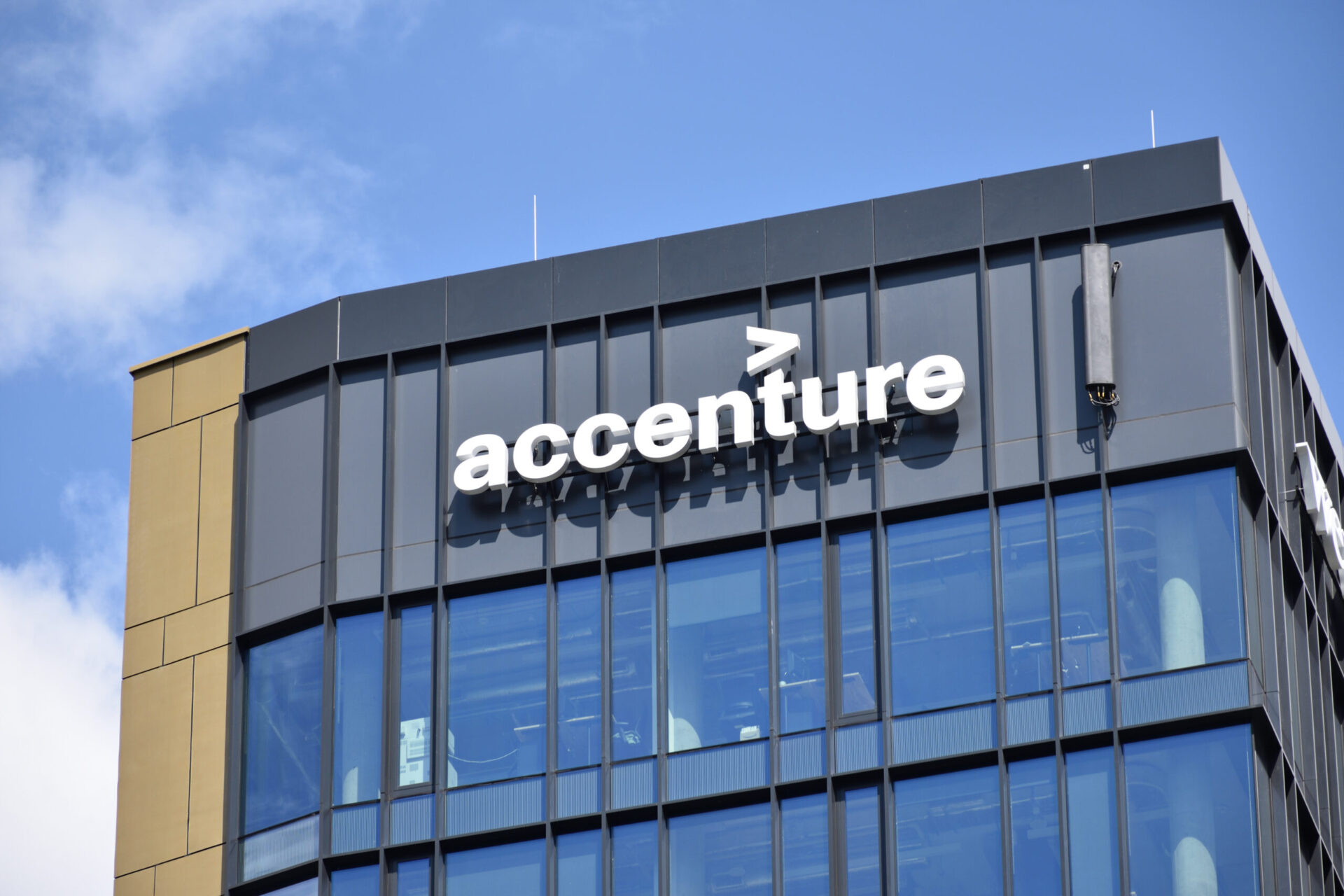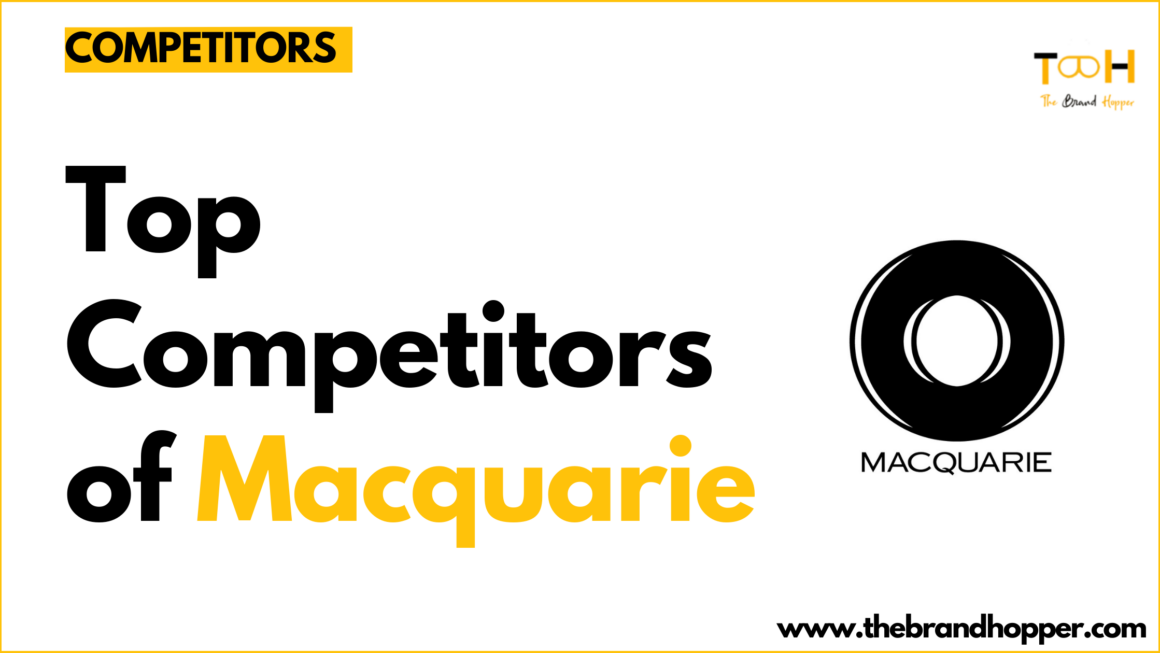Accenture plc is an Irish-American multinational professional services company headquartered in Dublin, Ireland. It is a Fortune Global 500 company and one of the Big Three professional services networks, along with Deloitte and PricewaterhouseCoopers.
Established as Andersen Consulting in 1989, Accenture underwent a rebranding in 2001 to reflect its commitment to accentuating the future while ensuring enduring success for its clients. The company has since evolved into a powerhouse in the realms of management consulting, technology services, and outsourcing, catering to a diverse range of industries and sectors.
Accenture provides management consulting, technology consulting, and outsourcing services. It has over 738,000 employees in more than 120 countries.
Accenture’s clients include 91 of the Fortune Global 100 and more than three-quarters of the Fortune Global 500.
The company was founded in 1953 as the business and technology consulting division of accounting firm Arthur Andersen. It became an independent company in 1989.
Accenture orchestrates its multifaceted services through five pivotal avenues:
- Strategy & Consulting: This division orchestrates a symphony of business strategy, technology strategy, and operational strategy services.
- Interactive: This facet curates digital marketing, analytics, and mobility services, breathing life into the digital realm.
- Technology: Anchored in technology, this sphere is a realm of software, implementation, delivery, and research & development.
- Operations: A beacon of the “as-a-service” model, this segment pioneers service delivery dynamics.
- Talent & Organization: Here, Accenture is instrumental in the metamorphosis and construction of client workforces.
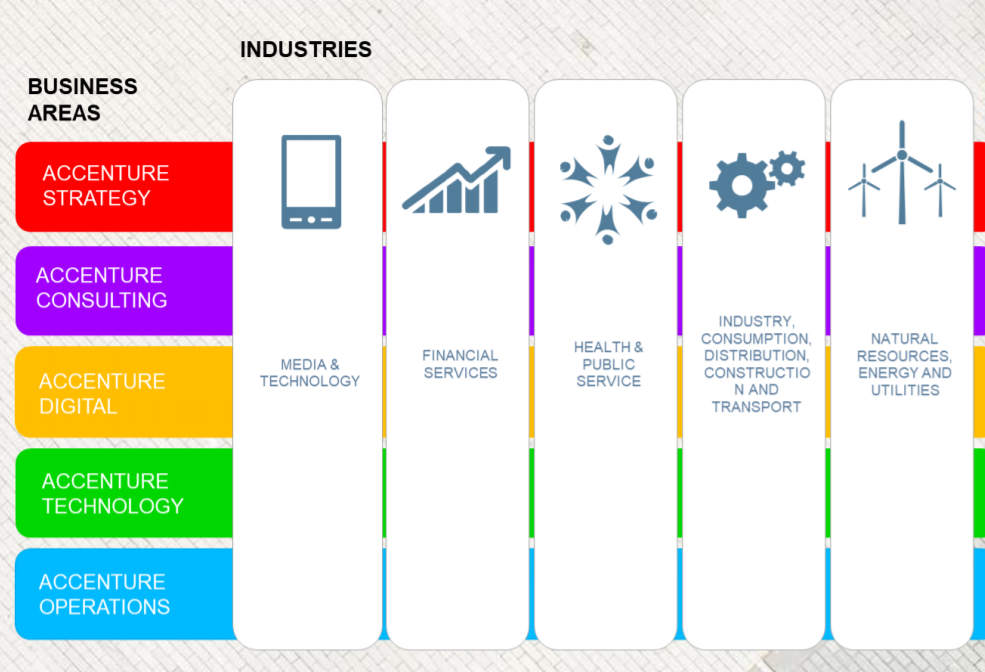
Accenture’s multifaceted services encompass strategy development, technology implementation, operational improvement, and a suite of industry-specific solutions. Whether it’s helping a financial institution streamline its processes, assisting a healthcare organization in optimizing patient care through technology, or aiding a retail company in enhancing its customer experiences, Accenture’s expertise spans the spectrum of business challenges.
In this introduction, we’ve only scratched the surface of Accenture’s influence and impact. The company’s legacy of excellence, its dedication to innovation, and its global reach position it as a cornerstone of modern business consulting and technology services, making it an instrumental player in shaping the future of industries around the world.
Founding History of Accenture
The founding history of Accenture is a tale of innovation, evolution, and independence that began within the corridors of a renowned accounting firm and eventually led to the establishment of a global powerhouse in professional services and technology consulting.
The origins of Accenture can be traced back to Arthur Andersen, a prominent accounting firm founded in Chicago in 1913. By the mid-20th century, Arthur Andersen had solidified its reputation as a reputable and influential player in the accounting and consulting sectors. In 1953, the firm established a dedicated consulting division to cater to clients’ growing needs for business and technology advisory services. This division, initially a subsidiary of Arthur Andersen, laid the foundation for what would eventually become Accenture.
As the consulting division within Arthur Andersen expanded its scope and client base, it became clear that the consulting arm was gaining prominence distinct from the accounting roots of the parent company. In 1989, the division underwent a transformational step by separating from Arthur Andersen to become an independent entity known as Andersen Consulting. This move allowed the consulting arm to focus solely on providing management and technology consulting services, unburdened by potential conflicts of interest that could arise from its association with an accounting firm.
The year 2001 marked a significant turning point in the company’s history. Andersen Consulting had been entangled in a legal dispute with Arthur Andersen over branding and ownership issues. Eventually, the two entities reached a settlement, and as part of the agreement, Andersen Consulting underwent a rebranding effort. On January 1, 2001, the company officially adopted the name “Accenture,” derived from “Accent on the Future.” This new name was intended to reflect the company’s commitment to embracing emerging technologies and leading clients toward success in the digital age.
With its rebranding as Accenture, the company set forth on a path to assert itself as a global leader in management consulting, technology services, and outsourcing. The early 2000s saw Accenture’s rapid expansion and diversification of services, enabling it to navigate through the dynamic landscape of business and technology. By providing innovative solutions, the company gained a reputation for its ability to drive efficiency, transformation, and innovation for a wide range of industries and clients.
In the years that followed, Accenture continued to evolve and adapt to the changing business landscape. It embraced emerging technologies such as cloud computing, artificial intelligence, and analytics, positioning itself as a trailblazer in digital transformation. The company’s commitment to fostering innovation, diversity and inclusion, and sustainability further solidified its standing as a forward-thinking industry leader.
Today, Accenture stands as a global powerhouse with a presence in numerous countries, a diverse and talented workforce, and a vast portfolio of services that address the complex challenges of the modern business world.
Marketing Strategies of Accenture
Accenture employs a multifaceted and dynamic approach to marketing. Its strategies encompass a blend of thought leadership, digital engagement, strategic partnerships, and a commitment to showcasing its expertise across a wide range of industries. Let’s delve into the details of Accenture’s marketing strategies:
1. Thought Leadership and Content Marketing:
Accenture positions itself as a thought leader by producing insightful content that addresses the challenges and opportunities faced by businesses in the digital age. This content includes whitepapers, research reports, case studies, and articles authored by its experts.
Thought Leadership:
Accenture prioritizes thought leadership as part of its content marketing strategy because it allows the firm to demonstrate expertise and knowledge in specific areas related to its consultancy services. By sharing insights and research findings, Accenture positions itself as an authority figure in various industries and domains. Some ways Accenture exercises thought leadership include:
- Publishing white papers, reports, and articles discussing emerging technologies, business trends, and best practices.
- Hosting webinars, podcasts, and live events featuring industry experts and Accenture leaders discussing current challenges and solutions.
- Developing interactive tools, calculators, and quizzes designed to help users assess their readiness for change or understand complex concepts.

Content Marketing:
As one of the world’s largest management consultancies, Accenture relies heavily on content marketing to educate potential clients, nurture existing relationships, and build brand awareness. Key components of Accenture’s content marketing strategy include:
- Creating informative blog posts covering topics ranging from artificial intelligence and cybersecurity to cloud computing and data analytics.
- Crafting case studies detailing successful projects completed for previous clients, emphasizing Accenture’s capabilities and impact.
- Sharing infographics, videos, and images illustrating complex ideas or summarizing important points for easier consumption.
- Utilizing social media platforms (e.g., LinkedIn, Twitter, Facebook) to distribute content, spark conversations, and engage with audiences.
By combining both thought leadership and content marketing, Accenture effectively communicates its value proposition and thoughtfully guides prospects along their buyer journeys.
2. Strategic Partnerships and Collaborations:
Accenture collaborates with leading technology companies, startups, and other industry players to deliver comprehensive solutions to clients. These partnerships not only enhance its service offerings but also provide opportunities for co-marketing and cross-promotion.
Strategic Alliances:
To enhance its ability to serve clients across multiple industries and geographies, Accenture forms alliances with leading companies in various fields. These strategic partnerships enable Accenture to access complementary skills, products, and services needed to address evolving customer demands. Some notable examples of Accenture’s strategic alliances include:
SAP: Accenture and SAP have had a longstanding relationship focused on co-innovation and joint go-to-market initiatives. Their collaboration helps customers capitalize on disruptive technologies like cloud computing, Internet of Things (IoT), and advanced analytics.

Microsoft: As a premier partner of Microsoft, Accenture works closely with the software giant to accelerate digital transformation using Azure, Office 365, Dynamics 365, and other enterprise platforms.
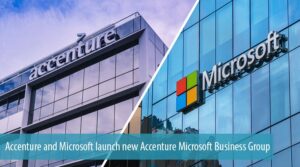
Amazon Web Services (AWS): Accenture and AWS formed a multi-year agreement aimed at helping clients migrate, run, and transform workloads on the AWS Cloud. This collaboration enables Accenture to leverage AWS expertise in machine learning, security, and DevOps practices.
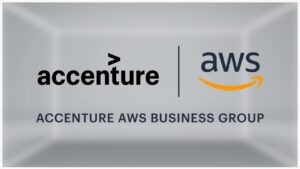
Pivotal Software: Accenture acquired a majority stake in Pivotal Software, strengthening its position in the rapidly growing market for cloud application development and digital platform modernization services.
-
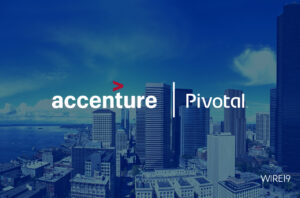
Accenture and Pivotal’s new Business Group
Startup Collaborations:
Recognizing the importance of staying ahead of emerging technologies and new business models, Accenture frequently partners with startups and venture funds. These collaborations allow Accenture to tap into cutting-edge innovations, pilot new approaches, and bring fresh thinking to its clients. Some examples of Accenture’s startup collaborations include:
- Plug and Play Tech Center: Accenture joined forces with Plug and Play to launch an open innovation platform designed to foster collaboration between large enterprises and startups. By working together, they can identify and scale groundbreaking solutions faster than ever before.
- Entrepreneur First: Accenture teamed up with Entrepreneur First to support early-stage entrepreneurs through mentorship, networking opportunities, and access to funding sources. This program empowers individuals to build successful businesses by leveraging Accenture’s global reach and expertise.
- Foundry Group: Accenture established a strategic partnership with Foundry Group, a leading investment firm specializing in artificial intelligence, cybersecurity, and quantum computing. Together, they explore emerging trends, incubate breakthrough ideas, and accelerate growth for next-generation startups.

Joint ventures and alliances amplify the impact of Accenture’s marketing efforts by tapping into the networks and audiences of its partners.
3. Industry Events and Conferences:
Participation in industry-specific events, conferences, and trade shows is a key element of Accenture’s marketing strategy. Accenture participates actively in various industry events and conferences around the world to showcase its capabilities, exchange insights with peers, and contribute to advancing relevant domains. Here’s how Accenture engages in these activities:
Industry Event Sponsorships: Accenture sponsors major industry gatherings where it can connect with decision makers, demonstrate thought leadership, and network with potential clients. The company supports events organized by prominent associations, research firms, and media outlets focusing on areas such as technology, finance, healthcare, retail, energy, telecommunications, and more.
Speaker Presentations: Accenture sends subject matter experts to present at industry conferences, sharing valuable perspectives on current challenges, best practices, and future trends. These sessions provide attendees with actionable insights and real-world case studies applicable to their respective industries.
Exhibitions and Showcases: At trade shows and exhibitions, Accenture sets up booths to display its latest solutions, services, and innovative projects. Visitors can interact with Accenture representatives, learn about available offerings, and experience hands-on demos tailored to specific sectors.
Thought Leadership Activities: Accenture leverages industry events to unveil original research papers, whitepapers, infographics, and other materials highlighting its unique viewpoints on critical topics affecting clients. These assets are shared via conference proceedings, panel discussions, webinars, and one-on-one meetings with interested parties.
Networking Opportunities: Throughout industry events, Accenture personnel engage in conversations with fellow participants to cultivate relationships, exchange knowledge, and explore potential collaborations. Such interactions facilitate cross-pollination of ideas, identification of mutual benefits, and establishment of lasting connections within the industry community.
By showcasing its expertise and thought leadership through keynote speeches, panel discussions, and booth exhibitions, Accenture can connect with potential clients, industry peers, and decision-makers.
4. Personalized Marketing and Data-driven Insights:
Accenture’s data-driven approach extends to its marketing strategies. It uses data analytics to understand customer preferences, behaviors, and needs.
Personalized Marketing:
Accenture creates targeted campaigns that resonate with individual prospects or clients based on their interests, behaviors, preferences, and pain points. This approach involves analyzing vast amounts of data collected from multiple sources, including website interactions, social media activity, purchase history, and survey responses. By segmenting audiences and crafting custom messaging, Accenture ensures each person receives content most relevant to them, increasing engagement and conversion rates.
Data-driven Insights:
To develop effective marketing strategies and optimize client outcomes, Accenture relies heavily on data analysis and predictive modeling. By mining information from internal systems, external databases, and third-party tools, Accenture gains deep understanding of customer behavior patterns, purchasing cycles, and industry trends. Armed with this insightful perspective, the company designs data-backed recommendations and action plans tailored to each situation, maximizing return on investment and driving sustainable growth.
Collaborative Approach:
In addition to employing sophisticated algorithms and statistical methods, Accenture emphasizes close collaboration among diverse teams throughout the entire marketing process. From initial strategy formulation to final execution and measurement, marketers, data analysts, creatives, and account managers work hand in hand to create compelling narratives, refine tactics, and adjust efforts in real time based on performance metrics and evolving circumstances. This integrated methodology guarantees well-rounded, adaptive campaigns yielding optimal impact across all channels and touchpoints.
This enables the company to tailor its marketing messages and offerings to specific industries, segments, and clients, enhancing the relevance and effectiveness of its campaigns.
5. Recruitment and Employer Branding:
Accenture’s marketing efforts extend beyond client acquisition to talent acquisition. The company utilizes its marketing channels to attract top talent and position itself as an employer of choice.
Digital Channels: Accenture leverages online job portals, professional networks, and company websites to promote open positions globally. By optimizing search engine rankings, posting visually appealing listings, and streamlining application processes, the organization makes it easy for candidates to discover and apply for suitable roles.
Targeted Campaigns: To source passive candidates who might not actively seek new opportunities, Accenture launches targeted advertising initiatives on platforms popular among desired skillsets (e.g., LinkedIn, Github). These promotions spotlight Accenture’s culture, career paths, and employee testimonials to pique interest and encourage applications.
Network Expansion: Beyond digital channels, Accenture attends career fairs, hosts info sessions, and conducts informational interviews to expand its presence within academic communities and niche industries. By fostering long-term relationships and providing valuable resources, the company establishes itself as an employer of choice among hard-to explain Recruitment and Employer Branding of Accenture
Employee Advocacy: In addition to traditional recruitment activities, Accenture encourages existing employees to share their positive experiences through various communication channels like email, blog posts, social media updates, and word-of-mouth referrals. By showcasing the company’s inclusive culture, development opportunities, and rewarding work environment, staff members help attract more talented individuals who align with Accenture’s values and aspirations.
Diversity & Inclusion Focus: Accenture prioritizes creating a welcoming, equitable, and supportive working environment for people from different backgrounds, abilities, orientations, and identities. The organization offers training programs, mentorship schemes, networking events, and resource groups to ensure everyone feels valued and empowered to contribute meaningfully to Accenture’s success.
Employee testimonials, insights into company culture, and descriptions of career opportunities contribute to its employer branding strategy.
6. Innovation Showcases and Demonstrations:
Accenture often organizes innovation showcases and demonstrations to exhibit the latest technologies, solutions, and prototypes it has developed. Accenture is known for hosting innovation showcases and demonstrations to highlight emerging technologies, cutting-edge solutions, and future-facing ideas shaping various industries. Here are some ways they bring innovation to the forefront:
Global Events: Accenture organizes global summits, conferences, and expos focused on exploring disruptive trends, debating thought leadership topics, and unveiling pioneering research findings. Attendees include executives, experts, visionaries, startups, and academia representatives eager to collaborate, exchange insights, and spark transformative change.

Interactive Experiences: At such gatherings, Accenture sets up interactive exhibitions, immersive simulations, and hands-on experiments to engage participants in novel technologies, advanced analytics, and futuristic design thinking. Visitors can try out prototypes, provide feedback, and connect directly with inventors, scientists, and entrepreneurs behind trailblazing concepts.
Online Platforms: Accenture runs dedicated web properties, microsites, and social media accounts committed solely to innovation news, opinions, and best practices. These virtual hubs offer articles, videos, podcasts, infographics, and other forms of content designed to educate, inspire, and stimulate discussion around revolutionary advancements affecting businesses worldwide.
Collaborative Labs: Accenture operates several innovation labs situated in major cities or embedded within client premises. Staffed by multidisciplinary teams combining expertise in design, engineering, data science, and strategy, these facilities serve as incubators for co-creating unique solutions addressing complex challenges facing organizations today. Participants interact closely with customers, experiment with emerging tech, and rapidly prototype minimum viable products before scaling successful pilots into enterprise-ready solutions.
These events offer clients and prospects firsthand experience with Accenture’s capabilities, fostering a deeper understanding of its expertise and innovative approach.
In sum, Accenture’s marketing strategies revolve around thought leadership, digital engagement, partnerships, and a commitment to demonstrating expertise across industries. By staying at the forefront of industry trends, leveraging technology, and fostering meaningful connections, Accenture effectively communicates its value proposition to clients, partners, and talent around the world.
Marketing Mix of Accenture
The 4Ps of Accenture’s marketing mix encompass how the company strategically approaches its service offerings, pricing, distribution, and promotional activities. Here’s a detailed breakdown of how each of the 4Ps applies to Accenture:
Product:
For Accenture, the “Product” primarily represents its diverse range of professional services. These services span across three main categories: management consulting, technology consulting, and outsourcing. Accenture’s services are designed to address various business challenges, ranging from strategic decision-making to digital transformation, operational efficiency, and innovation. Specific aspects of the “Product” element for Accenture include:
- Service Variety: Accenture offers a wide array of services, catering to different industries, business functions, and technological needs.
- Customization: Services are tailored to meet the unique requirements of each client, considering their specific challenges and objectives.
- Industry Expertise: Accenture’s services cover a broad spectrum of industries, including finance, healthcare, technology, and more, showcasing its deep industry knowledge.
- Innovation Focus: Accenture’s services often incorporate cutting-edge technologies, ensuring that clients benefit from the latest advancements.
Price:
Pricing in the context of professional services like Accenture is often more complex than straightforward product pricing. It involves considering factors such as the complexity of the project, the level of expertise required, the scope of work, and the potential impact on the client’s business. Key aspects of the “Price” element for Accenture include:
- Value-Based Pricing: Accenture’s pricing strategy is often based on the value it brings to clients’ businesses. The perceived impact on clients’ bottom lines and strategic objectives influences pricing decisions.
- Consultation and Estimation: Accenture typically engages with potential clients to understand their needs before providing customized estimates and proposals.
- Transparency: Clear communication about pricing and how it relates to the value delivered helps build trust with clients.
- Long-Term Value: Accenture’s pricing often considers the long-term benefits and outcomes clients can achieve through its services.
Place (Distribution):
The “Place” element for Accenture focuses on how the company delivers its services to clients and interacts with them. While the distribution of services is not tangible like physical products, it involves considerations like:
- Global Presence: Accenture has a global network of offices and consulting centers that allow it to serve clients across different regions.
- Digital Channels: With the rise of digital communication, a significant portion of Accenture’s interactions with clients occurs through digital platforms, such as virtual meetings and collaboration tools.
- Local Engagement: Accenture establishes a local presence to better understand clients’ regional needs and cultural nuances.
Promotion:
Promotion is crucial for Accenture to showcase its expertise, build brand recognition, and attract clients and talent. Accenture’s promotion strategies involve various tactics:
- Thought Leadership: Accenture produces thought-provoking content, including research reports, whitepapers, and articles, to establish itself as a trusted source of insights.
- Digital Marketing: The company utilizes its website, social media platforms, and online advertising to reach and engage its target audience.
- Partnerships and Collaborations: Collaborating with industry leaders and technology companies not only enhances Accenture’s capabilities but also extends its reach through partner networks.
- Industry Events: Participating in industry conferences and events allows Accenture to showcase its expertise and connect with potential clients.
- Client Success Stories: Sharing real-world examples of how Accenture’s services have positively impacted clients helps build credibility and trust.
In summary, Accenture’s marketing mix reflects its comprehensive approach to delivering professional services that cater to diverse industries and business challenges. By customizing its offerings, demonstrating value, engaging globally and digitally, and showcasing its expertise, Accenture effectively positions itself as a leader in management and technology consulting.
Also Read: Beyond Connectivity: Exploring Verizon’s Marketing Strategies
To read more content like this, subscribe to our newsletter

